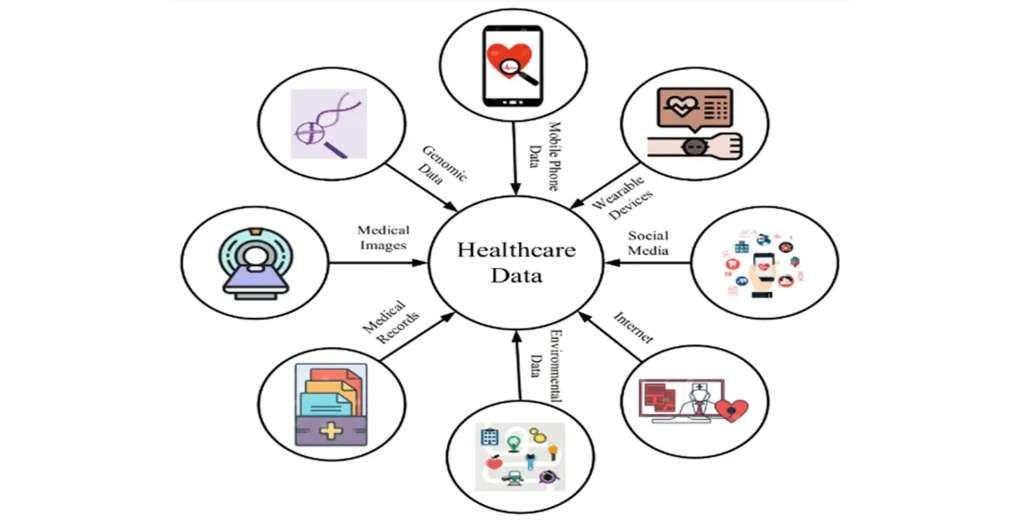
The role of machine learning (ML) techniques in the field of tailored medicine has drastically changed healthcare operations. This blog examines how important machine learning (ML) is to providing patients with individualized treatment plans that take into account their particular genetic, environmental, and lifestyle characteristics. The delivery of healthcare is changing as a result of the collaboration between machine learning and personalized medicine. This can involve anything from predicting the likelihood of an illness to customizing medication schedules. This blog discusses significant concepts and practices, as well as applications, challenges, and the significance of customized medicine.
- Introduction – Personalized Medicine through Machine Learning
The key to sustaining and increasing life is medicine. Since different physique systems do not share the same clinical characteristics, medication must be fitted to the specific organ system of the patient. The modern epidemic supplies as an excellent instance, as it has been noted that while a particular mixture of medicines, such as Remdesivir, Tocilizumab, etc., may be effective for a certain group of patients, it is not able to stop another group of patients with closely equal experimental properties from going from a slight or sufficient situation to a severe stage. Because personalized medicine takes a more “customized” approach, it may be able to address this issue. Another name for it is personalized, individualized, or precision medicine.
It is common practice to combine artificial intelligence and machine learning. To forecast or classify hidden or unknown patterns, machine learning is a subfield of artificial intelligence that finds variable patterns in data. These patterns can then be utilized for data mining, data modelling, and exploratory data analysis. The machine learning algorithms suggest that target-based medications may be found using information related to clinical, genetic, laboratory, dietary, and lifestyle factors.
Throughout this blog, terms like “personalized medicine” and “machine learning” are interchangeable with “artificial intelligence,” “individualized medicine,” and “customized medicine.” It is expected that readers of this post are familiar with data science, Python, and medical terminology.
- Benefits of personalized medicine
- Less treatment decisions would be made based on trial and error.
- It would lessen the financial and health-related obligations related to a condition.
- Medication that is patient-centric by integrating an individual’s multimodal data.
- Preventive medicine would receive greater attention than reactive medicine.
- A reduction in the duration and expense of the clinical trials that pharmaceutical companies undergo.
- The different steps in advancing healthcare through personalized medicine and machine learning process:
- Data Collection and Integration:
The following figure signifies several data generation sources in healthcare.

Figure 1: different data generation sources in healthcare
Source: https://www.mdpi.com/2227-7390/9/22/2970
- Genomic Data: gathering and combining genetic data to comprehend the individual genomic profile of the patient.
- Clinical Data: utilizing clinical data and electronic health records (EHRs) to document the patient’s medical history, course of treatment, and results.
- Lifestyle and Environmental Data: Considering lifestyle factors and environmental influences that may impact health.
- Feature Extraction and Selection:
- Selecting pertinent features from the integrated data that influence the course, response to therapy, or susceptibility to disease.
- Making use of methods to eliminate dimensionality and concentrate on the most illuminating characteristics.
- Predictive Modelling for Disease Risk Assessment:
- Using clinical and genetic data, machine learning models are developed to evaluate an individual’s likelihood of acquiring specific diseases.
- Creating risk scores that facilitate preventative and early intervention.
- Drug Discovery and Optimization via Machine Learning:
- During the drug discovery process, machine learning is used to identify potential drug candidates.
- Calculating the optimal course of treatment and dosages of medications using information specific to each patient.
- Real-time Monitoring and Adaptive Interventions:
- Employing permanent monitoring systems to track patients’ replies to treatment.
- To make real-time amendments to medication plans based on the progress of patient data using ML algorithms.
- Clinical trials and validation:
- A excellent compact of authorisation research needs to be done to guarantee that machine learning models are precise and consistent.
- Incorporating personalized medicine techniques and measuring their efficacy in clinical trials.
- Integration and Implementation into Healthcare Systems:
- Building structures to incorporate personalized medicine and machine learning into routine healthcare practices.
- Instructing medical experts in the correct understanding and application of tailored medicine conclusions.
- Continuous Learning and Improvement:
- Forming feedback loops to accelerate ongoing education in response to patient outcomes.
- Persistently advancing machine learning models with fresh data and perceptions.
- Patient Education and Engagement:
- Confirming that patients understand the value of machine learning in healthcare and the consequences of accepting individualized care.
- Pushing patients to take part in making decisions.
- Applications of personalized medicine using machine learning
- Disease Risk Prediction
- Developing predictive models that consider genetic, clinical, and lifestyle factors to assess the likelihood of disease occurrence.
- Genomic Medicine
- identifying genetic variants and mutations that affect therapy response and illness risk using genomic data analysis.
- Drug Discovery and Development
- Identifying potential drug candidates, predicting drug responses, and optimizing dosages based on patient-specific characteristics.
- Imaging and Diagnostics
- Improving image analysis algorithms for more accurate and personalized diagnostic assessments.
- Remote Patient Monitoring
- Analysing continuous health data to detect patterns, predict deteriorations, and recommend personalized interventions.
- Cancer Treatment Optimization
- Analysing genomics and clinical data to identify optimal treatment strategies for individual cancer patients.
By applying machine learning to tailored medicine, healthcare professionals can take a more precise, proactive, and patient-centered approach that will eventually enhance patient outcomes and the efficiency of healthcare delivery.
- Challenges and Considerations
Although personalized therapy has a lot of potential, there are drawbacks. Important factors that need to be carefully considered are data privacy, solid infrastructure requirements, and ethical considerations. The correct implementation of personalized medicine necessitates striking a balance between moral behaviour and innovation.
- Conclusion
A revolutionary age in healthcare is being ushered in by the combination of machine learning and customized medicine. This era will be characterized by better treatment outcomes, data-driven decision-making, and tailored patient care. This potent combination is revolutionizing the healthcare sector and pushing it forward in previously unheard-of ways.
- Dr Senbagavalli M,
- Dr Saswati Debnath,
- Prof. Lalli K
Alliance College of Engineering and Design
Alliance University